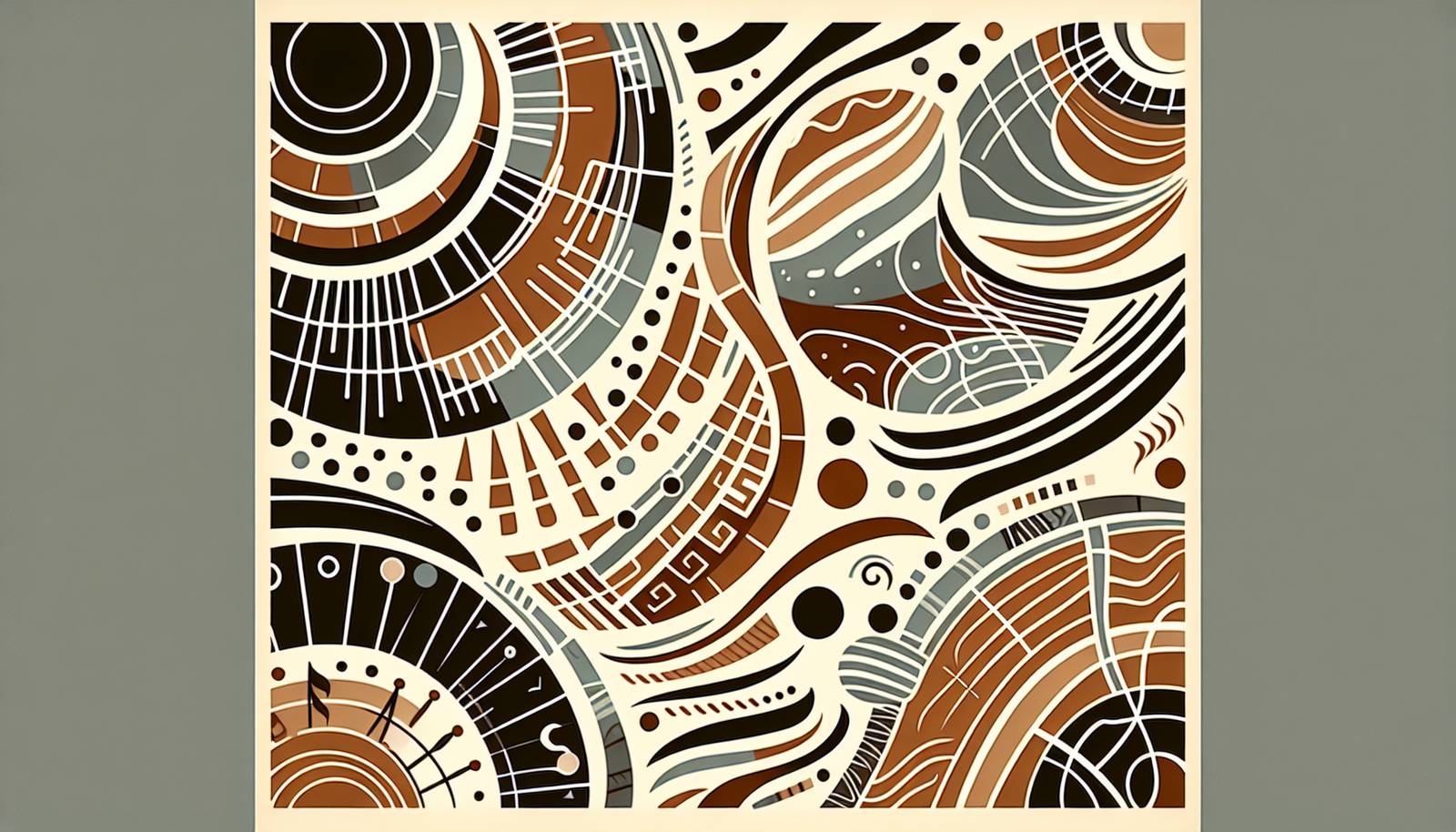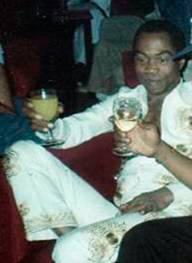
FAQ About Fela Kuti

Who was Fela Kuti?
Fela Kuti was a Nigerian musician, composer, and political activist known for pioneering the Afrobeat genre. Born Olufela Olusegun Oludotun Ransome-Kuti on October 15, 1938, he used his music as a platform to address political and social issues, particularly criticizing the corruption in Nigeria's government. His fearless activism often led to clashes with authorities but also garnered him a passionate following.

What is Afrobeat music?
Afrobeat is a music genre that combines elements of traditional African music, jazz, funk, and highlife. Pioneered by Fela Kuti in the late 1960s, Afrobeat is characterized by its complex rhythms, extensive instrumental segments, and politically charged lyrics. Fela's innovative approach to music sought to bring attention to social injustices and the political climate in Nigeria and Africa at large.

How did Fela Kuti contribute to political activism?
Fela Kuti was not only a musician but also a vocal political activist. Through his music, he criticized Nigeria's military regimes and other forms of corruption. His lyrics often challenged authority and highlighted issues such as poverty and human rights violations. Despite facing numerous arrests and raids, Fela persisted in using his art to advocate for change and empowerment in Africa.

What impact did Fela Kuti have on Nigerian society?
Fela Kuti's impact on Nigerian society was profound. His music became a rallying cry for those disillusioned by governmental corruption and oppression. He raised awareness about social and political issues, inspiring a generation of activists and musicians. His legacy continues to influence contemporary Nigerian music and socio-political discourse.

Why was Fela Kuti often in conflict with the Nigerian government?
Fela Kuti's outspoken criticism of the Nigerian government and its policies often put him at odds with the authorities. His lyrics condemned military rule, social inequality, and corruption. This resulted in frequent raids on his compound, known as the Kalakuta Republic, arrests, and jail sentences. Despite these challenges, Fela remained steadfast in his activism.

What is the significance of Kalakuta Republic in Fela Kuti's life?
The Kalakuta Republic was Fela Kuti's communal compound in Lagos, Nigeria, which he declared independent from the Nigerian government. It served as his home, recording studio, and a sanctuary for his band members and devotees. The Kalakuta Republic became a symbol of resistance and non-conformity, reflective of Fela's defiance against oppressive regimes.

How did Fela Kuti's upbringing influence his music and activism?
Fela Kuti was raised in a politically active family. His mother, Funmilayo Ransome-Kuti, was a prominent feminist and anti-colonial activist, and his father, Reverend Israel Oludotun Ransome-Kuti, was a teacher and Anglican minister. This environment of activism and political engagement heavily influenced Fela's worldview and inspired him to use music as a tool for advocacy.

What were some of Fela Kuti's most famous songs?
Some of Fela Kuti's most renowned songs include "Zombie," "Water No Get Enemy," "No Agreement," and "Sorrow Tears and Blood." These tracks are not only celebrated for their musical ingenuity but also for their potent political messages and critiques of Nigerian society.

How did Fela Kuti's music address social issues?
Fela Kuti's music often dealt with themes of poverty, corruption, human rights, and African identity. Through his lyrics, he criticized the oppressive governmental systems and urged listeners to be aware of and resist corruption and inequality. His music was a means of giving voice to the marginalized and oppressed.

Was Fela Kuti ever imprisoned for his activism?
Yes, Fela Kuti was imprisoned several times due to his activism. The most notable arrest occurred in 1984 when he was sentenced to 20 months in prison under spurious charges of currency smuggling by the regime of General Muhammadu Buhari. International pressure and widespread protests eventually led to his release.

How did Fela Kuti influence modern music genres?
Fela Kuti's Afrobeat has had a significant influence on various modern music genres, including hip-hop, funk, and electronic music. His emphasis on complex rhythms and socially conscious lyrics can be seen in the works of many contemporary artists. Musicians like Questlove and bands like Antibalas credit Fela's innovation as a profound influence on their sound.

Did Fela Kuti have any children who followed in his footsteps?
Yes, Fela Kuti's children have continued his musical and political legacy. His sons, Femi Kuti and Seun Kuti, are both accomplished musicians who continue to perform Afrobeat music and address social and political issues in their work. They have helped maintain and evolve the genre that Fela originated.

What was Fela Kuti's relationship with the media like?
Fela Kuti had a contentious relationship with the media. Often covered due to his provocative statements and lifestyle, he was both vilified and celebrated. His criticism of the press and government led to biased portrayals, but he commanded respect for his unwavering stance on important issues. His legacy endures partly because of, rather than in spite of, media scrutiny.

How did Fela Kuti's personal beliefs influence his music?
Fela Kuti's personal beliefs in Pan-Africanism, social justice, and human rights heavily influenced his music. He saw Afrobeat not just as entertainment but as a medium for socio-political engagement. His African heritage played a crucial role in defining his musical style and lyrical content, as he aimed to instill pride and consciousness in his audience.

What role did women play in Fela Kuti's life and artistry?
Women played significant roles in Fela Kuti's personal life and artistry. His mother, Funmilayo, was a major influence on his political beliefs. His band, Africa '70, and later Egypt '80, included many female members who were integral to his music and performances. Fela was also known for his complex and sometimes controversial relationships with women, including his simultaneous marriage to 27 women in 1978.

What is the legacy of Fela Kuti today?
Fela Kuti's legacy today is multifaceted, impacting music, politics, and culture. He remains an iconic figure whose life and work continue to inspire new generations. His music is celebrated for its innovation and message, with the annual Felabration festival commemorating his contribution. His activism serves as a beacon for those fighting for justice and equality worldwide.

How did Fela Kuti's music evolve over his career?
Over his career, Fela Kuti's music evolved to incorporate a broader range of influences and deeper social commentary. Initially inspired by highlife and jazz, his style grew to include funk, traditional African rhythms, and confrontational lyrics. His later works, characterized by longer songs and complex arrangements, solidified his reputation as a visionary artist.

What was Fela Kuti's philosophy on government and leadership?
Fela Kuti was a staunch critic of authoritarian regimes and believed in the power of the people to effect change. He advocated for transparency, accountability, and justice in governance. His philosophy was that good leadership should prioritize the well-being of all citizens and that music and culture are vital tools for social transformation.

Did Fela Kuti face any health challenges during his life?
Fela Kuti faced various health challenges, including multiple bouts of illness and the physical toll from encounters with the police and military. He also suffered from complications related to HIV/AIDS, which contributed to his death on August 2, 1997. His health issues, however, did not deter his spirit and dedication to his music and activism.

How is Fela Kuti remembered in Nigeria and globally?
Fela Kuti is remembered both in Nigeria and globally as a pioneer of Afrobeat and a fearless activist. In Nigeria, he is celebrated as a cultural icon whose music and message continue to resonate. Globally, he is honored for his contributions to music and his role in raising awareness about African political and social issues. His work is studied, celebrated, and recreated in various forms, ensuring that his influence endures.
